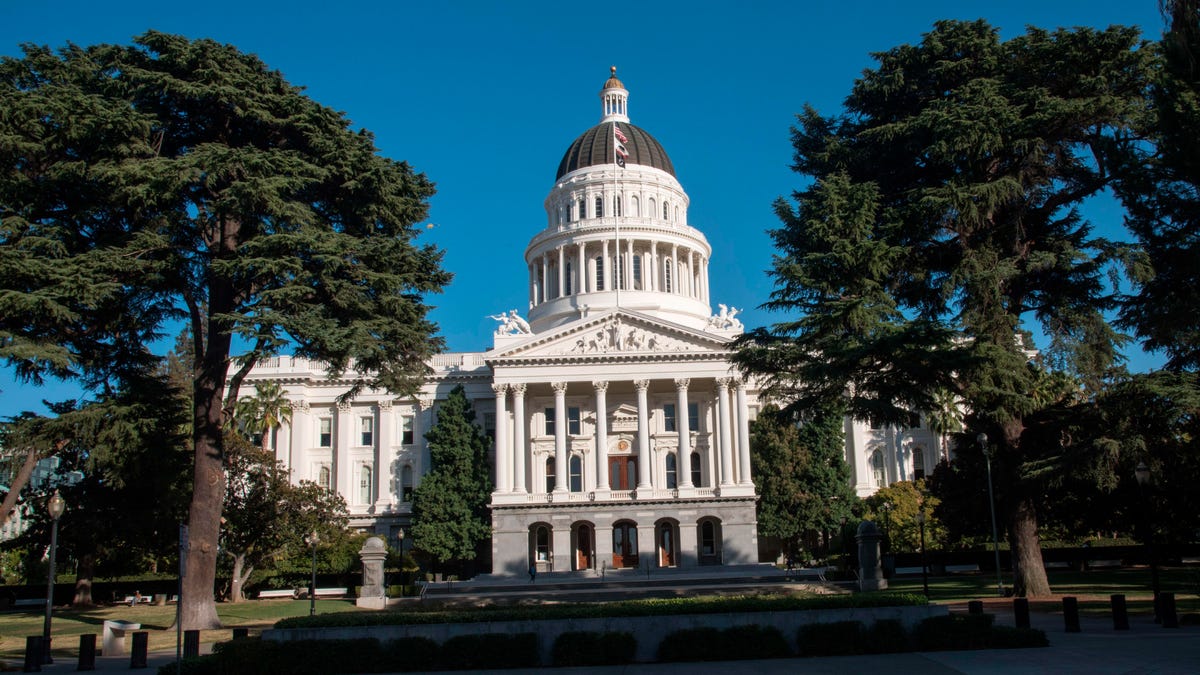California net neutrality bill passes state senate
California is on track to pass the strictest set of net neutrality protections in the country.

State capitol building, Sacramento, California.
California moved a step closer to reinstating Obama era net neutrality rules for its residents.
On Wednesday, the California State Senate passed a bill drafted by Scott Wiener, a Democrat state senator from San Francisco, that would impose the strictest set of net neutrality protections in the entire country.
Senate Bill 822 passed by a vote of 23-12. It now moves to the State Assembly. Hearings in that chamber will begin in June. The bill must be voted on by the State Assembly by the end of August. And in order to become law, it must also be signed by Gov. Jerry Brown, a Democrat.
"When Donald Trump's FCC took a wrecking ball to the Obama-era net neutrality protections, we said we would step in to make sure that California residents would be protected from having their internet access manipulated," Wiener said in a statement. "We have a lot more work to get this bill through the Assembly, but this is a major win in our fight to re-instate net neutrality in California."
Net neutrality is the idea that broadband companies can't slow down or block access to the internet nor can they pick and choose which content can get speedier access to customers.
The proposed rules in California go further than rules passed by Democrats at the Federal Communications Commission in 2015. The legislation not only transforms the FCC's 2015 net neutrality rules into California law, but it also bars internet service providers from offering sponsored content, zero-rating or other deals that could provide an economic incentive to broadband companies to discriminate against content riding on their networks. Such offerings allow a company to pay data charges so that certain content doesn't count against a wireless subscriber's data plan.
Additionally, the bill allows the state to oversee commercial interconnection deals to ensure broadband companies can't use their market power to charge hefty amounts from corporate customers. Interconnection deals are agreements between companies that provide internet content, such as Netflix, and ISPs, such as Comcast and Verizon.
The vote in the Senate is the first major step in getting the bill into law. It's being followed closely because advocates and the broadband industry alike believe the fate of the legislation could affect the national movement. New York has already tried to follow California's lead with the introduction of legislation with similarly strict protections.
California is one of more than two dozen states considering legislation to reinstate net neutrality rules, which were repealed by the Trump administration's FCC in December. The repeal becomes official on June 11. Other states, including New York, Connecticut and Maryland, are also preparing legislation to protect net neutrality. Earlier this year, Washington became the first state to sign such legislation into law. Governors in several states, including New Jersey and Montana, have signed executive orders requiring ISPs that do business with the state adhere to net neutrality principles.
Meanwhile, Democrats in the US Senate are trying to reinstate the FCC's rules through the Congressional Review Act, which gives Congress 60 legislative days in which to overturn federal regulations. The resolution passed the Senate earlier this month and must pass the House of Representatives and eventually be signed into law by President Donald Trump to officially turn back the repeal of the rules.
California's bill has won support from heavy hitters like former FCC Chairman Tom Wheeler, an Obama appointee, whose FCC adopted the 2015 rules. He's called the effort in California the "most sweeping" bill of its kind in the country. If it passes in its current form, Wheeler said he believes it could send a strong signal to other states and to Capitol Hill.
Large internet service providers, such as AT&T, Verizon and Comcast, oppose the California law. While they say they support the basic idea of net neutrality, they argue that bans on things like zero-rating and paid-priority, which could allow companies to pay broadband providers to get their services delivered faster than competitors, limit their ability to try new business models. The big broadband providers say without the ability to experiment with new business models, they'll have to charge consumers more for their services in the future.
The Smartest Stuff: Innovators are thinking up new ways to make you, and the things around you, smarter.
It's Complicated: This is dating in the age of apps. Having fun yet?

